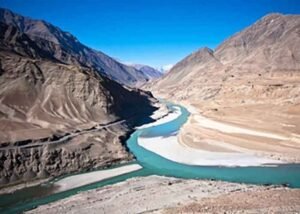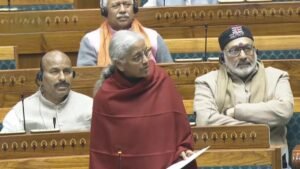Pakistan Sends 4 Letters: You might think water flows easily between countries, but that’s not always true. Pakistan recently wrote four separate letters to India asking for help with their water problems. These letters focus on something called the Indus Water Treaty, which helps both countries share river water fairly.
The situation shows how serious water shortages have become across Pakistan’s major cities. Officials there worry about crops dying, people going thirsty, plus other major problems that could hurt millions of families.
Pakistan Sends 4 Letters: What Makes This Water Treaty So Important
The Indus Water Treaty started back in 1960 when both countries agreed to share river water. Think of it like neighbours sharing a garden hose – everyone needs water, so they made rules about who gets what. This treaty helps decide which rivers India can use versus which ones Pakistan controls.
Pakistan’s government believes India has been blocking too much water lately. They claim this creates huge problems for farmers who need river water to grow food. Without enough water flowing down, crops fail completely.
Here’s what the treaty covers:
- Rules about which country controls specific rivers
- Limits on how much water each nation can store
- Ways to solve fights when they happen
Why Pakistan Feels Worried Right Now
Water levels across Pakistan have dropped to scary lows this year. Major cities like Karachi struggle to give people enough clean water daily. Farmers watch their wheat fields turn brown because rivers carry less water than before.
Pakistan says India built too many dams upstream, which stops water from flowing south. They argue this breaks the original agreement both countries signed decades ago. The letters ask India to follow the old rules again.
Pakistan’s water minister explained that some areas might face serious shortages soon. People living in rural areas could face the worst problems because they depend on river water more than city folks.
How India Responds To These Concerns
India’s position stays pretty clear – they follow all treaty rules properly. Their officials argue that Pakistan sometimes misunderstands how river systems work naturally. During dry seasons, less water flows everywhere regardless of human actions.
Indian engineers point out that climate change affects river levels too. When less rain falls in mountain areas, rivers carry less water downstream. This happens naturally, not because of dam construction.
Pakistan Sends 4 Letters: What Happens Next With These Letters
Both countries need to sit down together soon to discuss these water issues. The treaty includes ways to solve disagreements, but talks take time to organize properly. Pakistan hopes India will respond quickly to their four letters.
Water experts suggest several possible solutions:
- Better monitoring of river levels year-round
- Joint committees to check dam operations
- Sharing weather data to predict water flows
Pakistan’s letters stress that waiting too long could make problems worse. They want India to acknowledge their concerns before the dry season hits again.
Why Regular People Should Care About This
Water fights between countries affect everyone living nearby. When farmers can’t grow enough food, prices go up at grocery stores. Cities with water shortages face health problems that spread quickly.
Young people especially should understand these issues because water scarcity will likely get worse over time. Climate change makes rainfall patterns harder to predict, which complicates sharing agreements.
The Indus Water Treaty represents one of the world’s longest-lasting water agreements. If it breaks down, both countries could face serious problems that affect millions of people daily.
Pakistan’s four letters show how desperate the situation has become. Their government rarely sends multiple formal requests unless problems reach critical levels. India’s response will likely determine whether both sides can work together or if tensions increase.
Water doesn’t recognize borders, so countries must cooperate to manage shared rivers effectively. The outcome of these discussions could set examples for other nations facing similar challenges worldwide.








Be First to Comment